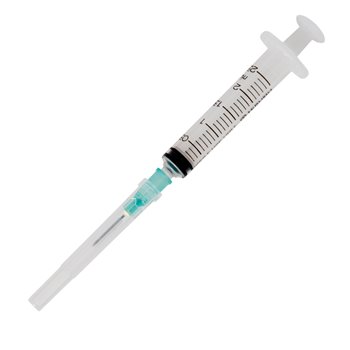
10mg Librela Solution for Dogs - 2 Vials
370939
10mg Librela is an innovative drug for the alleviation of pain associated with osteoarthritis in dogs.
Librela 10mg provides an innovative answer to managing the pain of osteoarthritis in dogs. This treatment successfully eases pain for an entire month, assured by its established safety record. Unlike conventional Non-Steroidal Anti-Inflammatory Drugs (NSAIDs), Librela's unique mechanism targets Nerve Growth Factor (NGF), a critical factor in osteoarthritis discomfort.
Librela is a refrigerated medication - We will send it via Royal Mail Special Delivery using insulated packaging and ice packs. A signature is required on delivery and it must be put straight into a fridge. We cannot guarantee same day dispatch for orders placed after 12pm. VETERINARY PRESCRIPTION REQUIRED.
Librela utilises monoclonal antibodies, proteins that form part of the immune system, to neutralise harmful molecules associated with disease. These antibodies act similarly to naturally occurring ones, offering a gentle treatment option with limited liver or kidney involvement and minimal gastrointestinal effect.
Product Features
- Pack Size: - Pack of 2
- Target Animal: - Dog (Canine)
- Related Condition: - Osteoarthritis in Dogs
- Pet Prescription Required?: - Yes
- Active Ingredient: - Bedinvetmab
- Product Name: - Librela solution for injection for dogs
More Information
Description
Dogs that were administered Librela in clinical trials demonstrated significant improvements in mobility and pain levels after just the first injection. Provided as a once-monthly injection at your veterinary clinic, Librela offers streamlined and effective pain management for osteoarthritis.
Moreover, 10mg Librela showcases a solid safety record, with no recorded interactions with other common medications. It was also well-received when used alongside other treatments such as parasiticides, antibiotics, vaccines, and RIMADYL®.
Librela 10mg presents a flexible solution for long-term control of osteoarthritis pain, especially beneficial for dogs who struggle with NSAIDs or oral medication. It delivers quick and adjustable pain relief.
Osteoarthritis is a common condition affecting 40% of dogs and can severely impact a dog's mobility and overall quality of life. With Librela, there is hope for effectively managing this pain and enhancing the life quality of dogs living with osteoarthritis.
Each vial of 1ml Librela contains 10mg bedinvetmab. Librela is a caninised monoclonal antibody.
Librela is used for the alleviation of pain associated with osteoarthritis in Dogs.
Dosage and administration
Librela is for subcutaneous use. The recommended dose of Librela is 0.5-1.0 mg/kg bodyweight, once a month.
For dogs weighing <5.0 kg aseptically withdraw 0.1 ml/kg from a single 5 mg/ml vial and administer subcutaneously. For dogs between 5 and 60 kg administer the entire content of the vial (1ml) according to the dose prescribed by your Vet. For dogs above 60 kg, the contents of more than one vial are required to administer a single dose. In those cases, withdraw the content from each required vial into the same syringe and administer as a single subcutaneous injection (2ml).
Contra-indications, warnings, etc.
Do not use Librela in cases of hypersensitivity to the active substance or to any of the excipients. Do not use Librela in dogs under 12 months. Do not use Librela in animals intended for breeding. Do not use Librela in pregnant or lactating animals.
Librela may induce transient or persistent anti-drug antibodies. The induction of such antibodies is uncommon and may have no effect or may result in a decrease in efficacy in animals that responded to treatment previously. If no or limited response is observed within one month after initial dosing, an improvement in response may be observed after administration of a second dose one month later. However, if the animal does not show a better response after the second dose, the veterinary surgeon should consider alternative treatments. The safety of the veterinary medicinal product has not been established during pregnancy and lactation or in breeding dogs. Laboratory studies with anti-NGF antibodies in cynomolgus monkeys have shown evidence of teratogenic and foetotoxic effects. In a laboratory study over a 2-week period in young, healthy dogs without osteoarthritis, this veterinary medicinal product had no adverse effect when concomitantly administered with a non-steroidal anti-inflammatory product (carprofen). There are no safety data on the concurrent long-term use of NSAIDs and Librela in dogs. In clinical trials in humans, rapidly progressive osteoarthritis has been reported in patients receiving humanised anti-NGF monoclonal antibody therapy. The incidence of these events increased with high doses and in those human patients that received long-term (more than 90 days) non-steroidal anti-inflammatory drugs (NSAIDs) concomitantly with an anti-NGF monoclonal antibody. Dogs have no reported equivalent of human rapidly progressive osteoarthritis. No other laboratory studies on the safety of concomitant administration of this veterinary medicinal product with other veterinary medicinal products have been conducted. No interactions were observed in field studies where this veterinary medicinal product was administered concomitantly with veterinary medicinal products containing parasiticides, antimicrobials, topical antiseptics with or without corticosteroids, antihistamines and vaccines. If a vaccine(s) is to be administered at the same time as treatment with this veterinary medicinal product, the vaccine(s) should be administered at a different site to that of Librela’s administration, to reduce any potential impact on immunogenicity of the vaccine. Do not mix with any other veterinary medicinal product. Mild reactions at the injection site (e.g. swelling and heat) may uncommonly be observed. The frequency of adverse reactions is defined using the following convention: - very common (more than 1 in 10 animals treated displaying adverse reaction(s)) - common (more than 1 but less than 10 animals in 100 animals treated) - uncommon (more than 1 but less than 10 animals in 1,000 animals treated) - rare (more than 1 but less than 10 animals in 10,000 animals treated) - very rare (less than 1 animal in 10,000 animals treated, including isolated reports). No adverse reactions, except mild reactions at the injection site, were observed in a laboratory overdose study when Librela was administered for 7 consecutive monthly doses at10 times the maximum recommended dose. In case of adverse clinical signs after an overdose the dog should be treated symptomatically. User warnings Hypersensitivity reactions, including anaphylaxis, could potentially occur in the case of accidental self-injection. Repeated self-administration may increase the risk of hypersensitivity reactions. The importance of Nerve Growth Factor in ensuring normal foetal nervous system development is well-established and laboratory studies conducted on non-human primates with human anti-NGF antibodies have shown evidence of reproductive and developmental toxicity. Pregnant women, women trying to conceive and breastfeeding women should take extreme care to avoid accidental self-injection. In case of accidental self-injection, seek medical advice immediately and show the package leaflet or the label to the physician. Pharmaceutical precautions
Store Librela in a refrigerator (2°C - 8°C). Do not freeze. Store in the original package. Protect from light. Shelf life after first opening the immediate packaging: use immediately Keep out of the sight and reach of children. For animal treatment only.
Legal category:
Librela is a POM-V (Pet Prescription Required)
You may also like

BD Discardit 2ml Syringe with 21g Needle - each
This 2ml syringe with an attached 21-gauge (21g) needle is suitable for administering specific medications to cats and dogs that require subcutaneous injections. Each syringe is individually packaged, sterile, and designed for single use only. This product is commonly used in veterinary practices and at home under veterinary guidance.
The syringe has a 2ml capacity and is fitted with a 21g needle. This needle size is considered suitable for administering certain subcutaneous or intramuscular injections in cats and dogs, depending on the medication and the animal’s size and condition. The 21g needle offers a balance between needle strength and minimal discomfort during injection, making it appropriate for routine use with specific veterinary biologics.
This type of syringe is appropriate for administering Solensia, Librela, and Cytopoint, which are injectable monoclonal antibody therapies used to manage chronic pain and allergic dermatitis in pets. These medications are typically prescribed for monthly administration and are given via subcutaneous injection. The 21g needle provides a suitable gauge for delivering the full dose efficiently while maintaining comfort for the animal.
Solensia is prescribed for the management of osteoarthritis pain in cats. It is given once a month via subcutaneous injection. The 2ml syringe allows for accurate dosing, and the 21g needle is appropriate for the viscosity of the Solensia solution and for delivering it under the skin in a cat with minimal stress and tissue trauma.
Librela is used in dogs to treat pain associated with osteoarthritis. Like Solensia, it is administered subcutaneously once a month. The 21g needle is appropriate for most dog breeds and sizes, as it enables smooth delivery of the medication while being strong enough to penetrate the skin effectively without bending or breaking.
Cytopoint is another monoclonal antibody therapy, used to manage allergic dermatitis in dogs. It is also given as a monthly subcutaneous injection. The 2ml capacity of the syringe provides ample volume to accommodate the required dose, and the 21g needle is compatible with the formulation’s consistency and administration method.
This syringe and needle combination should not be used for insulin administration in cats or dogs. Veterinary insulin products such as Caninsulin and Prozinc require specific insulin syringes that are calibrated differently from standard 2ml syringes. Insulin syringes are typically marked in units, not millilitres, and have finer, shorter needles such as 29g or 30g, which are designed to deliver precise insulin doses in small volumes. Using a standard 2ml syringe for insulin injections can lead to inaccurate dosing and can be dangerous to the animal.



